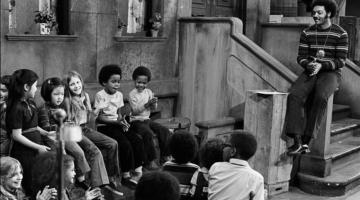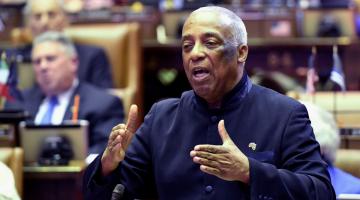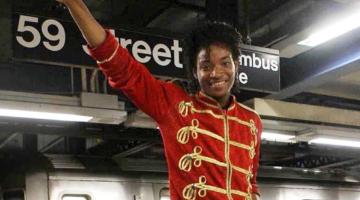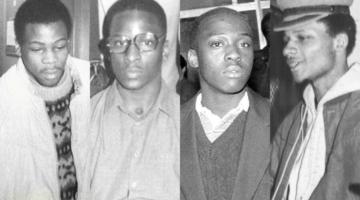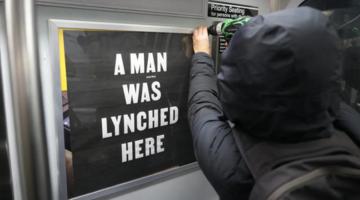Zohran Mamdani’s democratic socialist vision won NYC’s primary but lost Black voters to scandal-plagued Cuomo by 20 points, exposing the left’s racial blind spot even as Wall Street prepares to spend millions against him.
On Saturday, June 28, just days after vanquishing former Governor Andrew M. Cuomo with relative ease in the Democratic primary for New York City mayor, Zohran Mamdani went uptown, visiting the Harlem headquarters of the Reverend Al Sharpton’s National Action Network.
In truth, Mamdani’s appearance before the civil rights organization was less a campaign stop than a pilgrimage, the objective of which was to shore up the nominee’s support among a critical constituency in the Democratic party, African Americans, whose votes were instrumental in electing the incumbent Mayor, Eric Adams and his predecessor, Bill de Blasio. Despite his progressive messaging and policy proposals to address issues of affordability in the nation’s most iconic city, however, Mamdani lost the Black vote by nearly 20 percentage points to Cuomo, who won 51 percent of ballots cast by African Americans citywide. And in precincts where at least 70 percent of residents are Black, Cuomo more than doubled Mamdani’s support, 59 percent to 26 percent.
Voter turnout in those precincts was too low to turn the electoral tide against the 33-year-old Mamdani, who beat the brakes off Cuomo, the former New York governor who was forced to resign his office in 2021 amid allegations that he had sexually harassed at least 11 women. A democratic socialist, Mamdani managed to win huge electoral margins in liberal strongholds like Astoria, Queens, Manhattan’s East Village, and the Bushwick neighborhood in Brooklyn, while turning out Asian voters in huge numbers. If elected in November, the Ugandan-born Mamdani would be New York City’s first Muslim mayor.
His appearance at the National Action Network last weekend was intended to reassure Black New Yorkers ahead of the general election when he will square off against Adams, who skipped the primary and will be on the ballot as an independent. Adams is African American but deeply unpopular as a result of his administration’s austerity and pro-police policies and allegations of influence peddling that led to federal charges, which were later dropped after Donald Trump intervened on Adams’ behalf. Mamdani’s populist proposals include free bus service, free child care and government-run grocery stores, but it is his vocal denunciation of Israel’s genocide in Gaza that has earned him the enmity of Zionists like New York’s junior U.S. Senator Kirsten Gillibrand, the billionaire hedge-fund manager Bill Ackman and former Mayor Michael Bloomberg, who poured tens of millions into Cuomo’s campaign and are expected to double down on their investments and endorsement of Adam’s independent mayoral campaign.
Flanked by Sharpton and the film director Spike Lee, Mamdani echoed Ronald Reagan’s classic line in asking the mostly African American audience Saturday:
“What does morning look like in this city?”
Continuing, he said:
“When you feel hurt, I will seek to heal you. When you feel misunderstood, I will seek to understand you, because ultimately I serve you. That is what public service has to be.”
The New York Times quoted one African American in attendance, Alyah Horsford-Sidberry, a local Democratic leader who supported Adrienne Adams, the City Council speaker, in the primary, describing Mamdani’s speech as electrifying and reminiscent of former President Barack Obama.
But Rosa Clemente, a Black Puerto Rican journalist, scholar, activist and the Green Party’s 2008 nominee for vice president, told Black Agenda Report that it is what Mamdani doesn’t say that is off-putting to many African Americans and Latino New Yorkers.
“As someone who ran (for high political office) I read politicians’ platforms and to not even see the word “Black” on his (web page) is not good for me as a Boricua… Why can’t he just say ‘Black?’”
By failing to address specific issues important to New York’s African Americans, Mamdani’s campaign seems to be consistent with the Democratic Socialists of America, or DSA, which insists that “class” and not “race” is the only political divide that matters in the U.S. That, according to Clemente and others, fails to acknowledge the profound racial disparities in wealth, health, and the criminal justice system in New York and across the nation. Black New Yorkers often joke that the city’s homeless shelters resemble slave ships. Said Clemente:
“In the DSA class trumps everything. That is ridiculous when statistically we know that white people who are poor are typically treated better than Black people of means.”
As one example, Clemente notes that African American women in New York City are nearly four times as likely to die during childbirth than are white women, a gap that virtually vanishes when Black obstetricians deliver babies born to Black women. Similarly, African Americans in New York City were four times more likely than whites to be saddled with a high-interest, predatory, subprime mortgage at the height of the real estate bubble in 2007, and Black households earning more than $300,000 annually were more likely to be issued a subprime loan than were white households with an annual income of $30,000 which means that African Americans weren’t targeted because they couldn’t pay but because they could.
Said Clemente:
“If I could ask Mamdani anything, I’d ask ‘What about reparations?’
‘Have you met with Puerto Ricans in the Bronx?’...
‘What group is he meeting with that is doing work around police violence?’
Next time a Black or brown person is killed by NYPD—and we all know it’s going to happen—are you gonna meet with the racial justice community first, or the police?’”
Finally, referring to the squalid, overcrowded New York City jail that is known for violence, much of it encouraged or overlooked by correctional officers, she asked:
“‘And is he committed to closing Rikers Island?”
(Citing a scheduling conflict, Mamdani skipped a May forum held by New Yorkers for Reparations but he sent a statement that voiced his strong support for reparations; a spokeswoman for the organization told the Times that the statement was “well-received.”)
White leftists have a history of using class reductionism to ignore racism and even making common cause with white supremacy.
In a 1912 pamphlet entitled – rather unimaginatively– N*gger Equality, a Socialist writer, Kate Richards O’Hare championed what might today be referred to as the Great Replacement Theory.
“In Kansas City black men have replaced white men in the packinghouses wherever possible, and the white daughters of both Republican and Democratic voters are forced to associate with them in terms of shocking intimacy. In the coal mines of the whole United States black men have been used to replace white miners until there is not a shred of race distinction left.”
To stanch whites’ loss of social standing, O’Hare unsurprisingly proposed strict enforcement of segregationist mores, concluding emphatically:
“SOCIALISTS WANT TO PUT THE NEGRO WHERE HE CAN’T COMPETE WITH THE WHITE MAN.”
Eugene Debs wrote in the International Socialist Review in 1903:
“The history of the Negro in the United States is a history of crime without a parallel.” And yet, “(t)here is no Negro question outside of the labor question. . . The class struggle is colorless. The capitalists, white, black and other shades are on one side and the workers, white, blacks and all other colors, on the other side.”
That led W.E.B. DuBois, who was briefly a Socialist, to write of the party’s bizarre tone -deafness:
“No recent convention of Socialists has dared to face the Negro question fairly.”
Moreover, gentrification and a shape-shifting economy have transformed the political economy of the American city. New York’s Black elected Democrats, many of whom were deeply critical of Cuomo a few years ago when his sex scandal came to light, overwhelmingly endorsed Cuomo in the primary. But younger voters, both African American and white, favor politicians who are closer to their age and more liberal than the previous generation. Karen Jarrett, a senior Mamdani advisor told the New York Times that Mamdani’s efforts to connect with African American voters in the primary were stymied by old-guard political elements in New York’s Black community:.
“There were gatekeepers; Those gates are now open.”
Gentrification played a role in Black voters’ reticence to vote for Mamdani, the Reverend Rashad Moore, an African American and the senior pastor of First Baptist Church in Crown Heights told the New York Times:
“The politics of the city are shifting.” The “tough part that we’re wrestling with is Zohran won with support of liberal progressive white folk. Are these the same progressive white folk that are pricing us out and we can’t live in the community? That’s the tension.”
Clemente lives in upstate New York and no longer has a vote in the city. She says that if she had, she might still cast a vote for Mamdani; his anti-Zionist rhetoric and pro-worker policies are vastly preferable to Adams or even Cuomo who will also appear on the ballot as an independent in November. And while she predicts that Mamdani will be able to withstand the deep-pocketed opposition from Wall Street and the Democratic party’s establishment to win the general election, she notes that he stands a much better chance of winning the election and governing as a progressive by reaching out to Black New Yorkers and acknowledging that not everyone’s Blues is the same.
Jon Jeter is a former foreign correspondent for the Washington Post. He is the author of Flat Broke in the Free Market: How Globalization Fleeced Working People and the co-author of A Day Late and a Dollar Short: Dark Days and Bright Nights in Obama's Postracial America. His work can be found on Patreon as well as Black Republic Media.

